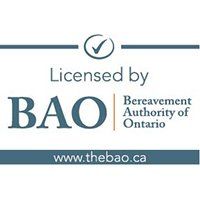Advance Directives
We spend a lot of time talking about the importance of living responsibly, which involves preparing for the realities of life. While we believe making the decisions involved in funeral pre-planning
is one reflection of a responsible mindset, we also know the critical importance of completing an advance directive.
What is an Advance Directive?
Sometimes called advance care directives, these document ensure that your wishes will be carried out in the future.
Defined as "a written statement of a person's wishes regarding medical treatment," advance directives, when properly signed and witnessed, will provide guidance for medical and health care decisions in the event the individual becomes incompetent and can no longer make such decisions.
Other Things to Know About Advance Directives
- Advance directives are legal throughout Canada.
- Governing laws vary so be sure to obtain an advance directive that complies with your province's laws.
- You do not need an attorney to complete an advance directive.
- If you reside in more than one province, you should complete an advance directive for each province where you spend a significant amount of time.
- There are no time limitations on advance directives. A signed advance directive remains in force until a new one is completed.
- Periodically review your advance directive to make sure it still reflects your desires. If it doesn't, don't try to amend it; simply complete a new one.
- Paramedics and emergency medical technicians cannot recognize or honour a living will or medical power of attorney. They are obligated to do their best to stabilize the patient and get them to the hospital. When you are in the care of hospital personnel, your advance directive becomes valid.
What's Involved in Preparing an Advance Directive?
Dying with Dignity Canada
explains that "writing an Advance Care Plan involves much more than simply filling out a form. It is essential to take time for reflection and discussion to ensure your Plan reflects your values, beliefs and wishes."
There are many resources available online to assist and guide you in writing your Advance Directive.
Where to Obtain an Advance Directive Form
It's fairly easy to get a copy of the advance care directive form for your province. Your local hospital is a reliable source, as federal law requires every hospital to not only provide information about advance directives to people in their service area, they are also required to share valuable information about the related laws in your province. Contact your local hospital to learn more. Your family physician may also have advance directive forms available for patients.
You will need to have the advance directive witnessed and notarized. If you do not have access to a notary, you can find one using either of the following websites:
Dying with Dignity Canada also offers Advance Care Planning Kits to assist you in making your advance care directive.

